The costs or/and advantages of being “different”, that is, thinking differently.
by
Alicia Colson,
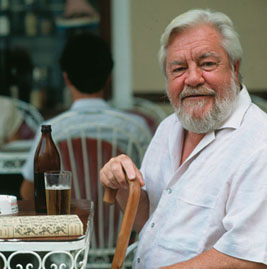
Being different and unconventional means doing something that’s not deemed conventional according to one’s social group, contemporaries, professional or culture is never easy. Thinking differently means pushing intellectual frontiers forward, and exploring the planet in another way. Challenging an academic idea, itself a ‘frontier’ mapped and signposted, can be dangerous. In crossing that frontier you’re risking your mental and physical health, your professional and your personal identity. Your all.
As a teenager I soaked up, almost inhaled, the writings of travellers such as Eric Newby, Paul Theroux, Gerald Durrell, Martha Gelhorn, Laurence Durrell, as well as a wide range of other books on topics in history and anthropology which belonged to my parents and which I found in their bookshelves of their studies at home. What I read, what I saw as I traveled with my parents, academics, when they went on research trips, growing up amongst academics influenced my decision to want to do something which involved foreign languages, and travel. In this life I should continuously learn to challenge myself mentally, understand how other societies functioned, and push the frontiers, whether intellectual frontiers or physical.
The pursuit of Archaeology seemed to me a good way of doing this. But though trained at a first rate institution, working with one of the finest minds engaged in the subject I discovered a different frontier, one replete with barbed wire fences, machine gun towers and unwritten visa restrictions. These are the specific conventions, notions and ideas of what an archaeologist ought to study to be ‘conventional’ and what type of archaeological study is ‘canonical’, i.e. ‘conventional’.
In the course of my undergraduate studies in the UK and working in the field as an archaeologist I discovered that one should only do ‘conventional’ archaeology. I rapidly learned that to be interested in ‘unconventional’ archaeology, and would not qualify for a ‘visa’. I should have spent more time working on conventional horizontal excavations and less time working as a crew member of the archaeological surveys of some of the river systems in of Northern Western Ontario seeking to identify pictograph sites (which I term as rock images) under the auspices of the Ontario Government. These surveys entailed traveling for several days by canoe to get to the area where sites might be located and required further investigative work. But the fundamental problem was that this was not seen as the equivalent as excavating a pit in a horizontal area of terrain.
This struck me as odd since all members of our teams were trained archaeologists, and like myself had excavated ‘conventional’ archaeological sites. We surveyed for all types of sites and recorded pictograph sites, on cliff faces, using many of the standard techniques used to record ‘horizontal’ sites and place them in the archaeological record. So, since I was doing my undergraduate degree I just did additional fieldwork of the more conventional, the horizontal, type of archaeology. Admittedly it was frustrating to hear that archaeological fieldwork in the boreal forest of northern Ontario was worthless but I figured that was ‘life’. Perhaps surveying and recording ‘vertical sites’ as well as ‘horizontal’ sites as an archaeologist in northern Ontario was simply too ‘easy’.
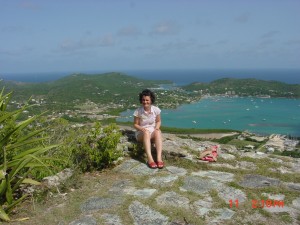
I realised that if I wanted to continue working as an archaeologist I would need a graduate degree so I took up an offer to do a PhD at Southampton University where I’d work on some interesting sites in Brazil. I am fluent in Brazilian. However, the project fell through due to ‘administrative’ reasons so I was persuaded to a Master’s degree.
This was a fundamental error on my part. My experience as a graduate student in the archaeology department at Southampton could only be described as a hell hole. That is if you defied ‘the Party line’ in intellectual terms. It was of course a ‘Paradise’ if you did. Growing up around academics had led me to believe that one learned by questioning ideas and playing around with them amongst your peers and with guidance from a more experienced mentor.
However, I quickly learned that some academics are rigidly conventional. They live in self-built ‘boxes’. This is far removed from the notion of those ivory towers, from which the academy can be understood as a mysterious place of learning, where people spend their days basking in the rays dispensed by lofty ideas. Conduct of intellectual life in these ivory towers is subject to unwritten, unspoken, rigid rules. Contrary to myth relatively few academics are radical and few challenge the fundamental frameworks within which they practice their discipline. Many escape to the ivory towers to seek safe haven from a changing world, where they cannot be challenged by others. Their lives are protected by these rules since penalties exist for those who challenge them. The ivory towers might be perceived as courtyards where the bullies are the most senior academics, who pick on the younger ones, their students and of course the juniors, in this case the graduate students. These last of course are seen as potential ‘urban guerillas’ and must be dealt with by draconian force – if they do not behave, then they are to be shunned. The famous Brazilian political phrase ‘everything for my friends, for my enemies – the Law’ sums it up.
My experience in the Archaeology department at Southampton taught me that graduate students were not supposed to play around with abstract ideas and to unknowingly challenge their supervisor’s and other senior professors’ intellectual perspectives. Generally speaking people are uncomfortable when their professional and academic boundaries are challenged but insecure academics dislike this intensely.
This proved to be the case in Southampton where the Faustian bargain made between universities and the Thatcher government meant that tenure was gone. The removal of the stability of the regime meant that academics felt they had in some ‘real’ sense lost ‘control’. They had to cling on by enforcing doctrinal orthodoxy, or lose precious funding, and with it, the prospect of advancement. Academics from 1986 onwards were affected by the RAE (Research Assessment Exercise) or what Sir David Cannadine termed “battery chickens on overtime laying for their lives”. It was truly corrosive. It is not that the idea of assessment is wrong, but the exercise led to the institutionalization of ‘cabals’ and put a primacy on ‘orthodoxy’. Those outside the ivory tower might perceive academics and graduate students as having ‘having total freedom to sit around and think’ but this was far from the truth. Indeed, academic success in Southampton’s archaeology department required toeing the intellectual line, not challenging your seniors (by default betters) doing what’s expected of you and putting up with bullying. Failure to comply and conform to what’s expected would have disastrous results. Students were bullied and destroyed by the academics if they questioned the accepted paradigms used by them. Some were driven to nervous breakdowns. But the key thing was that the academics destroyed their professional reputations, those students would have no hope of a well paid job. How could they account for the time spent at Southampton to people who hadn’t undergone the same terrors? There was no such way. Everyone’s whose incipient professional career was destroyed became a ‘non-person’ – they were deemed to have no right to a profession. For me there was no way of explaining what I had done for the time spent in the department – no letters, no references, nothing. This predicament was made worse by the fact that in the England of the 1990’s, as in many parts of the world, having a profession is crucial since this dictates ones social class, sadly it indirectly affects who your friends are, how much you earn yearly and might earn in your lifetime, your social life, everything. These academics clearly didn’t want their students to challenge ideas since they were only interested in surviving within a Post-Modern argot which enabled them to flee the Thatcherian and Blairite worlds and stake their personal careers, their own academic goals in the dissection of ‘heritage’. As Tony Judt wrote in his book published in 2005 it was clear that in Post-Thatcher’s Britain ‘an evocation of a genuine nostalgia for the fake past’ existed. In a manufactured world in which an invented ‘heritage’ triumphed in the public eye some could argue with some plausibility that there was no possibility that one person’s interpretation might be better than any other’s (see Judt’s discussion in 2005: 770-772). Now, over 15 years later these academics are the leading academics in the profession in the country heading up professional societies, institutions, and departments, arbiters of the destiny of their ‘disciples’.
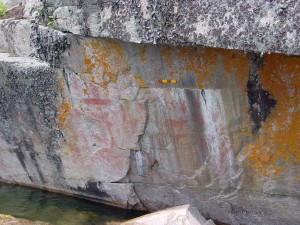
I discovered to my cost, both mental, physical and social (I lost most of my so called friends especially those who were professionals) because I could not work in the type of job that I had gone to graduate school to do…I had no status since my professional career had been purposely destroyed just because I had questioned the ‘Post Modern’ intellectual paradigm that these academics used, debate, lived in and thought about. Above all sought to distance themselves from the challenges posed by the economies and societies in which they lived. By destroying my professional position in society, they had destroyed any hope of working of anything more than a cleaner or a switch board operator…they essentially destroyed any hope of improving my life for myself, and this in the England of 2000 affects in Britain one’s social class. Most, of my so-called friends dropped me like a hot potato. I didn’t talk to my sister since she was currently an undergraduate in a department that believed in the same ideas held by these academics who’d destroyed those like me and my colleagues who had also challenged them. For defying ‘their’ paradigms we were to be reduced to the status of professional and social lepers.
I eventually left the UK since there was really no point in staying. It was either spend my days only being able to get a job working as a receptionist, a switchboard operator, or a cleaner or to change my life by reinvent myself in another country based on my experience as an archaeologist in Canada. I moved to Canada since my experience of the senior archaeologists was that they were tolerant, open-minded and appreciated being asked about they thought about a site. I subsequently applied to McGill and became the last doctoral student of the late Professor Bruce G. Trigger. It was an incredible delight and pleasure to be supervised by him. He encouraged me to play with as many intellectual paradigms as I liked…and to intellectually challenge myself. He told me that whenever I questioned ideas, frameworks, concepts, philosophical issues held by others that I must critique others as I would like others to critique mine with kindness, with careful deliberation. It was above all crucial to acknowledge that they had done a large amount of work to come to their conclusions. Indeed, Bruce also advised his students that data should be squeezed like an orange to extract as much information as possible. He taught us that we had to squeeze the data hard to enough to make the Triggarian orange pips squeak.
But the final kick in the teeth from the Archaeology department at Southampton occurred since I thought, on Bruce’s advice, that it might be a good idea to see my transcript from that institution. He thought that it might be useful to see the transcript to see whether a course could be used from this department to enable me to pursue my work at McGill. This was an event that involved having a lawyer from the biggest law firm in the city of Southampton request a transcript. She found out that the School of Graduate Studies denied in a letter to her, that I “legally did not exist” and consequently that I had never attended the university as a graduate student. My lawyer thought something was strange there since she knew me from secondary school and I had given her a copy of the bank statement which proved that I had paid fees from my bank account on a specific day. Bruce was horrified, told me that he was appalled, and that academics should not behave in the manner that they did. (He knew all the gory details of the entire experience that I had been through). We never discussed the subject again.
Being an explorer of any type really involves unintentionally challenging people’s perceptions, ideas and thinking. Crossing those ‘frontiers’. Everyone involved in exploring whether physically or intellectually knows that rigid thinking will always exist. To challenge the status quo one must understand and then ignore these rigid thinkers. Sadly they often hold the purse strings or are the frontier guards and demand visas, preferably in Vogon speak. Of course those who are also explorers do not throw the rule book at you. Unfortunately exploring often requires money…and doesn’t involve doing the conventional things or having the conventional ‘stuff’.
Striking out and being different takes courage, a strong personality and a lot of will power. It’s just not that easy to go against the norms which I think being an explorer (whether you’re exploring the planet or pushing intellectual frontiers) requires. An explorer of both types is challenging people. People often dislike challenges and changes regardless of the benefits they might confer.
Whether it is worth challenging convention is really a personal decision and depends on what you want in your life. I’ve learned that not following the norms has lead to being perceived as unconventional. But challenging frontiers of different sorts sometimes has a huge price. I never realised that challenging intellectual frontiers would be so dangerous and that the price would be so very high. My life is totally different to what I had hoped and dreamed it would be when I entered university as an undergraduate. I’ve learned along the way that it has become far more interesting and is very different to that of my contemporaries in England. Of course it involves greater risks, costs, and disadvantages. I know that if I’d not challenged the status quo that I’d not be where and who I am today.
Biography:
Dr. Alicia Colson (McGill) has been an archaeologist since 1990 and has undertaken archaeological fieldwork in Canada, the UK, the US and most recently Antigua. She is currently involved in the creation of a consortium drawn from the world of New Media and Academe to establish a new digital academic publishing company, working from a ‘think tank’ located in a purpose-built research park in NW Ontario. She has recently become an International Fellow of the Canadian Branch of the Explorers Club.
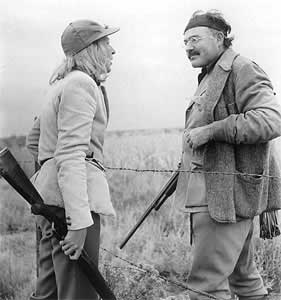
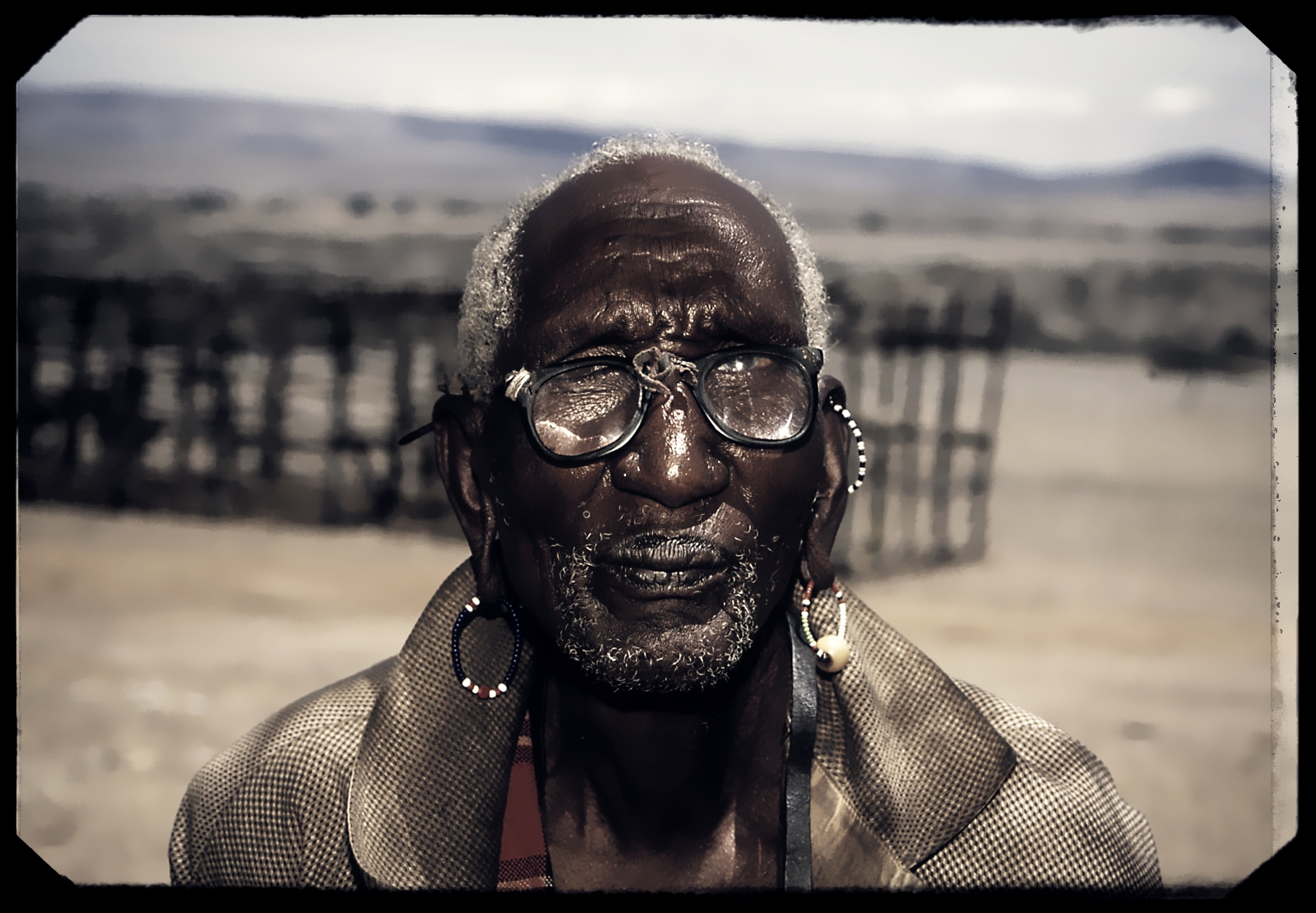
Striking out and being different – does takes courage, a strong personality and a cast iron will. But, as you have found, and as have I, doing so unsettles the insecure, and those whose lives are constrained by convention. Choice in life is freedom. I applaud you for being true to yourself. The world and its people are to be explored – not doing so is a lost opportunity.
What you say is true. While academics (in the U.S at least) lean towards the liberal in their politics, they are often quite conservative in culture. The university is filled with ranks of rigid thinkers, big egos, and labyrinthine rules. There are also, fortunately, Bruce Trigger types here as well. I have been fortunate to have many of these as friends, colleagues, advisors, and chairs. Yet I don’t think this spectrum is so different from other professions. I have experienced rigidity and open-mindedness in the science lab, the restaurant industry, and among ex-pats, travelers, and professional adventurers too. As Mikael’s latest posts indicate, people climb mountains and cross deserts for a variety of reasons; to expand their horizons, to pad their CVs, or to complete a “bucket list.” The freedoms and failings of of academic culture are, I think, a subset of human culture as a whole.
Terrific article! That is the kind of info that are supposed to
be shared around the web. Disgrace on the search engines for not positioning this post upper!
Come on over and discuss with my website . Thanks =)
Sweet blog! I found it while surfing around on
Yahoo News. Do you have any tips on how to get listed in Yahoo News?
I’ve been trying for a while but I never seem
to get there! Appreciate it
really love the post
Loved your article and that you’ve eventually found a place or yourlself . The article should be posted to every. graduate and undergraduate struggling with an authoritarian academy.